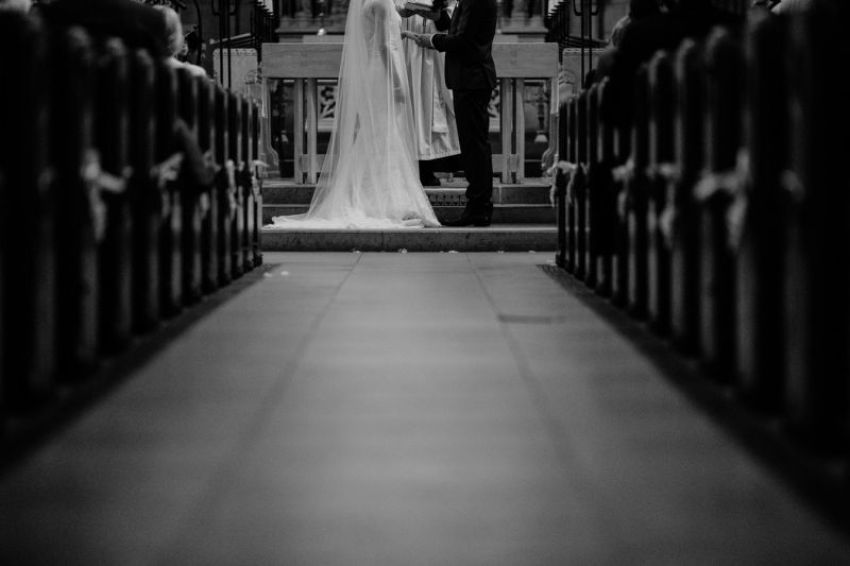Amid changing norms and economic insecurity, marriage rate falls to historic low

While marriage has been shown to positively impact society in health outcomes, longevity and economic security, a new report from the National Center for Health Statistics shows marriage rates have now reached its lowest point in more than 100 years due to changing norms and economic insecurity.
The report by statisticians Sally Curtin and Paul D. Sutton also noted that that while adults have been increasingly postponing marriage, a record number of current youth and young adults are projected to forego marriage altogether.
Even though the federal government has been collecting marriage data since 1867, the latest report focuses on marriage rate per 1,000 population from 1900 through 2018. From 2017 to 2018, the rate dropped 6%, from to 6.9 per 1,000 population to 6.5, which is the lowest marriage rate on record for the period studied.
“Millennials are in peak marriage years, their 20s and 30s, and it’s still dropping,” Curtin, who is the lead author of the report, told the Wall Street Journal. “This is historic.”
The researchers highlighted many variations in marriage rates between 1900 and 2018 but noted that the most pronounced fluctuations occurred during the 1930s and 1940s, at the time of the Great Depression and World War II.
Marriage rates ranged between 9.3 per 1,000 population and 12.0 from 1900 to 1929 and then declined to a relative low of 7.9 in 1932, the report said. Between 1932 and 1946, however, the marriage rate more than doubled to an all-time high of 16.4, then dropped to 8.4 in 1958 before stabilizing at 8.5 around the period 1959 to 1962.
From 1982 to 2009, marriage rates steadily declined, before stabilizing from 2009 to 2017 at a range between 6.8 and 7.0.
Reacting to the report Wednesday, former MLB first baseman and two-time World Series Champion Aubrey Huff lamented that there were diminishing incentives for especially wealthy men to get married.
“I believer in marriage the way it used to be before it became a business. There is absolutely zero reason for a wealthy man to marry in today’s society. Nothing to gain, and everything to lose,” he wrote on Twitter.
Recent research highlighted how a variety of economic factors have resulted in marriage increasingly becoming a status symbol of wealth. Many successful women were also being forced to choose to remain unmarried or settle for men who earn less than $53,000 and lack a college degree, according to researchers Daniel T. Lichter of Cornell University, Joseph P. Price of Brigham Young University, and Jeffrey M. Swigert of Southern Utah University in Mismatches in the Marriage Market.
University of Maryland sociology professor Philip Cohen, author of The Coming Divorce Decline, noted in an earlier report that today, marriage is becoming more of an “achievement of status” for those who choose it.
“Marriage is become more selective, and more stable, even as attitudes toward divorce are becoming more permissive, and cohabitation has grown less stable. The U.S. is progressing toward a system in which marriage is rarer, and more stable, than it was in the past, representing an increasingly central component of the structure of social inequality,” Cohen said.
Many poorer and less educated Americans are often in cohabiting relationships with children and those relationships are seen as less stable.
Just last month, a Wall Street Journal analysis of census data from 1980 to 2018, showed that middle-class Americans were already forsaking marriage amid financial insecurity.
The middle three-fifths of U.S. earners, households that earned from $25,000 to $125,000 in 2018, showed the sharpest declines in marriage rates over the past four decades compared with people at the bottom of the income ladder and those at the top, the analysis said.
“Economic conditions, even in the good economy, remain difficult for many working Americans,” Daniel Schneider, assistant professor of sociology at the University of California, Berkeley, who has studied marriage, told the publication. “That is not conducive to you feeling like you could get married, or people wanting to marry you.”



























